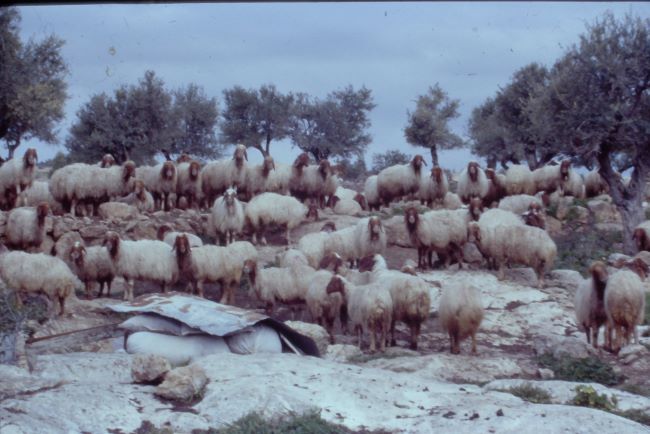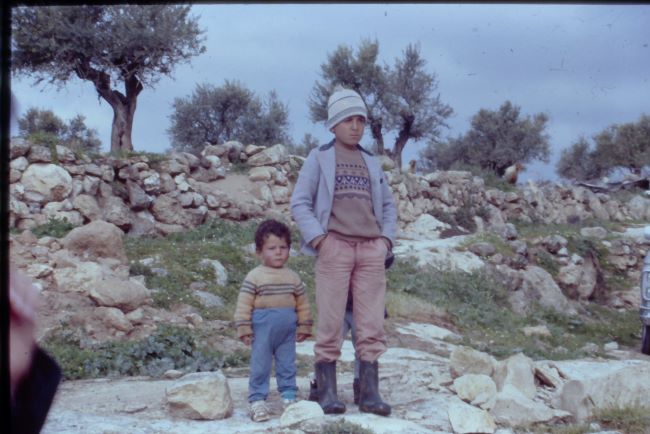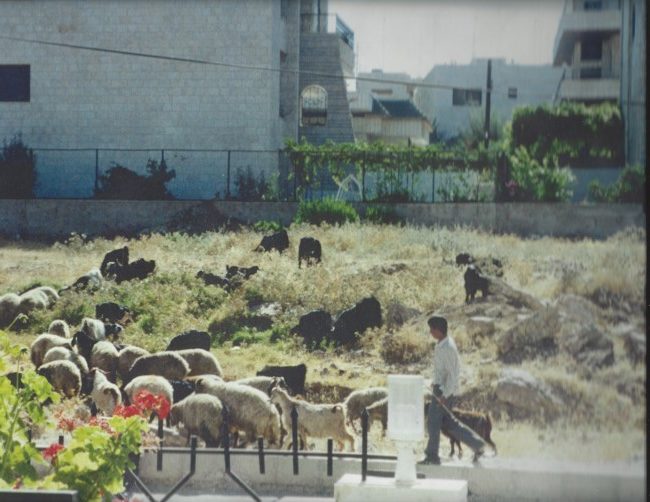
THE GOOD SHEPHERD: The Christian Legacy of True Love
Shepherds hold a special place in our collective past, and I believe key to understanding our Christian legacy of sacrifice and Christ-like service. They can teach us much…if we have ears to hear.
A true shepherd—a Good Shepherd—is a unique type of person. A naturally protective, watchful person. A caregiver, a nurturer.
Traditionally, the good shepherd knows each one of his sheep by name. He protects his sheep, and the sheep of his friends and neighbors. And because he cares, the sheep also know the good shepherd’s voice. They know him, personally, and they follow him.
“For I give them eternal life; and they shall never perish, neither shall anyone snatch them out of my hand” (John 10: 27, 28).
Throughout history, shepherds were never among the elite of any society. They’ve never had their own armed bodyguards, private jets, or lavish vacation homes and walled estates. Most lived short, desperate, sometimes tragic, lives, their children too often dying as infants due to the harsh conditions they struggled under.

Therefore, they’ve always turned to God, and other shepherds, their neighbor shepherds, for help, for sustenance, for protection. There just wasn’t anybody else.
“And there were in the same country shepherds abiding in the fields keeping watch over their flocks by night.”
So, why were shepherds nearby the Holy Birth, out in the fields, keeping watch?
One reason: ‘Because there was no room in the inn’ (at Bethlehem), so it was necessary for Joseph and Mary to find shelter for Christ’s birth probably in one of many caves that housed makeshift mangers, and shelters, on the outskirts of the little hamlet of Bethlehem. Nearby where Christ would be born, shepherds were ‘abiding in the fields, keeping watch over their flocks by night.’
The humble, the caring, the protective and watchful, deemed worthy by God the father to witness the holy birth. A coincidence?
Many scientists and historians believe it was actually springtime when Christ was born, not December. It was the time of lambing, when hungry, winter-starved predators abound—wolves, jackals, bears, even lions. But mostly the predators that walk on two legs.
At such a critical time of year, shepherds don’t get much sleep. And the good shepherds even less. They build protections for the sheep out of zariiba, or a type of jujube bush. In the Holy Land these are dry, thorny bushes that can be cut (carefully) and woven into an impenetrable fence or barrier. (Incidentally, and ironically, these same thorns were likely used to make the Savior’s crown of thorns. The same thorns that shepherds used to protect and save their sheep from the world’s dangers and evils. Once more, a divinely provided metaphor of our Savior’s willingness to don a painful, humiliating crown in order to protect us, to save each one of us from a corrupted world.)
As we know, Good Shepherds do everything they can to ensure that they don’t lose even a single sheep or newborn lamb. They know their sheep, and their sheep know their voice. They take their calling seriously.
THE GOOD SHEPHERD
In Middle Eastern lands, lands where I’ve spent part of my life, there is a standard, an ideal, of the Good Shepherd, the man, or woman, who is willing to lay down his life for his sheep. I got a glimpse of this both hearing and witnessing firsthand the accounts of humble shepherds who considered their stewardship of the sheep their most important, even God-given, calling.
As we know, in the sacred words of the Savior:
11- I am the good shepherd: the good shepherd giveth his life for the sheep.
12- But he that is an hireling, and not the shepherd, whose own the sheep are not, seeth the wolf coming, and leaveth the sheep, and fleeth: and the wolf catches them, and scatters the sheep.
13- The hireling flees, because he is a hireling, and careth not for the sheep.
14- I am the good shepherd, and know my sheep, and am known of mine.
15- As the Father knoweth me, even so know I the Father: and I lay down my life for the sheep (John 10:11-15).
Our home in the Hashemite Kingdom of Jordan stood on the outskirts of the city of Amman. There was much vacant land around our villa, land that while we might consider desolate, with scorpions and vipers amid the rocks, local Bedouin herders would run their sheep through this vacant land because of the grass that grew there, particularly in the winter and spring months.
While there were always children tending these flocks, if you looked closely, nearby there would be found an adult male, often armed, keeping watch on everything going on around his sheep, making certain that his children and grandchildren were safe, but also that his precious flock was protected and able to get the grass and water it needed.
I talked with a few. They were strong, but humble men, all God-fearing. They knew their lives were precarious. They had little, if any, resources to fall back on. God was their ultimate protector. And their children, and their sheep, were to be preserved at all cost. Truly, they were Good Shepherds.
Once a Middle Eastern king’s motorcade was rolling fast through a desert area where there were several Arab tribal flocks of sheep regularly herded amid the sparse grass. As the king’s limo dropped over a hill, his car hit a lamb that had wandered onto the road.
The king stopped his motorcade and inspected the lamb, which was now in the protective arms of the flock’s nearby shepherd. The lamb was obviously hurt, requiring medical attention. But, to the king and his entourage, this was nothing but a worthless lamb, an inconvenience, one that should be easily dispensed with.
Now in this kingdom the law stated that if someone were to hit a sheep on the road that the offending driver must pay the shepherd ten-times the sheep’s value. But in so paying, the sheep would then be slaughtered, and all the meat given to the one paying the penalty for hitting the animal in the first place.
As the king’s assistant talked with the old shepherd, however, the shepherd refused the king’s money, stating that he would keep the lamb and nurse it back to health. Everyone noticed that the shepherd was carefully cradling the lamb in his arms and speaking softly to it.
But the king was frustrated. Why would anyone refuse such a windfall in payment for just a lowly lamb, one that could be easily replaced. However, the king’s assistant, who knew the ways of the shepherds, understood. He explained to the king, carefully, that the shepherd knew each and every one of his sheep. He was especially tender towards the newborn lambs. He would no sooner take money for a wounded lamb to then see it slaughtered and eaten, than he would if it was one of his own children.
But the king was not convinced. “Is the man mad?” The king said. “Look, he keeps whispering to the lamb. This is madness, surely.”
The king’s assistant explained. “No, Sire, the man is speaking comforting words to the lamb, using the lamb’s own name. That’s because the shepherd knows the names of each and every one of his sheep, and in turn, they all know his voice. See how the lamb has quieted down, now resting calmly in the shepherd’s embrace? Please, my King, consider the shepherd and his lamb as you would one of your own children.”
The king stood in silence, studying the old shepherd a long moment, then said: “I understand.” He faced the shepherd, proclaiming: “Peace be upon you, Good Shepherd.”
The king and his entourage roared off along the desert highway. If they would have looked back, they would have seen the tired, weather-beaten face of the shepherd with tears on his cheeks carefully bandaging the lamb’s wounded leg, all the while calling the little fellow by his cherished name.
GRANDPA RICK’S TESTIMONY:
My dear brothers and sisters, the love the Savior has for each of us, demonstrated not with impersonal, even self-aggrandizing, deceptive words (as Satan always uses to sway people to his side), no, but with our Savior’s own excruciating DEEDS, he carried out willingly in our behalf, the seemingly impossible deeds of trauma, pain, sacrifice, and the eternal burden of shouldering human sin, grief, and malady that encompassed the Infinite Atonement—in Gethsemane, on the Cross, and three days buried in the Holy Tomb.
By willingly coming to this most sinful, even hostile, world, we begin to understand that because of life’s temptations, weaknesses, illnesses, and hardships, it would be impossible on our own to once again return to our perfect, sinless, celestial Father-In-Heaven, not without help.
Because he loved us, our Father provided us with a Good Shepherd, one who would not seek his own personal gain over our own salvation. Recall what Satan tempted the Savior with when he was sojourning in the wilderness, fasting for 40 days and 40 nights? Satan offered ‘All the power & riches of the world,’ everything worldly that one could attain in this earthly sphere would be the Savior’s if he would only bow down and worship Lucifer.
But no. The Good Shepherd could not be bought. We meant too much to him. I testify that we are his lambs. The Lord knows each of us by name, and how best to heal and save us individually. This is not a collective process. It was never meant to be. Like the good shepherd in the story, the Lord carries each one of us, in his arms and in his heart every day, and especially those who may feel unworthy, alone, or hopelessly lost.
Brothers and sisters, the Good Shepherd lives. I testify that he will never, ever abandon us.
In His sacred name, even Jesus Christ, Amen.
—Richard Parker Robison

